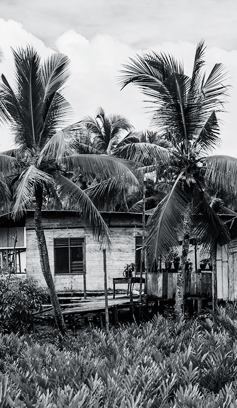
Despite a slowdown in the global economy, lower commodity pricesand drought in 2016,many foreign companies will likely see Papua New Guinea (PNG) as one of the few places in the world where they can expand their business operations in 2017. Even withthe many challenges of doing business in PNG there are equally as many opportunities especially in the resources, construction and growingtourism industries.
The PNG Government has made it clear through legislation and policy that it wants to continue to nurture a competitive international environment for foreign direct investment. Companies such as TOTAL, Exxon Mobil and Oil Searchhave not only maintained confidence in PNG but have also increased their investment in the country.
As a foreign company or individual you may now be looking at PNG as a place to do business or even to set up a company branch office. Before setting up your branch office or carrying on business in PNG here aresome things you need to know:
PNG business operating structures
PNG has similar operating structures to countries like Australia and New Zealand. The most common business structures for foreign investors wanting to carry on business in PNG is through a limited liability company. Before deciding which business structure to use in PNG, it is important you seek professional advice from a PNG qualified lawyer, professional business adviser or accountant.
If you want to use a company structure to operate in PNG then you have two options. You can either incorporate alocal PNG company or register your existing company as an overseascompany. The prescribed cost of incorporating a local company or registering asan overseas company is about the sameif conducted online – around K600 (or about AUD$280).
A copy of the prescribed fees can be obtained from the Office of Registrar of Companies located at the IPA Haus, Munidubu Street, (Cnr of Lawes Rd & Champio Parade), Port Moresby. An electronic copy of the prescribed fees can also be downloaded from the Investment Promotion Authority(IPA) website.
The choice to incorporate or register will depend on a number of factors which may include:
- company long term goals;
- control;
- risk and asset protection; and
- taxation.
If you do decide to incorporate a PNG company then one or more directors must be a resident of PNG. A company is not required to appoint a secretary but may do so if it chooses. It is also a requirement to have a physical address in PNG (a P.O Box will not be satisfactory).
Registering an offshore company in PNG and setting up a branch office
A company which is incorporated overseas may carry on business or have a branch office in PNG provided it is registered in PNG as an overseas company. Under PNG’s Companies Act 1997 an overseas company that commences to carry on business in the country must apply to registration as an overseas company under the Companies Act within one month of commencing carrying on business .
It is advisable to seek a PNG qualified lawyer to prepare and lodge the relevant documentation to enable a company to be registered as an overseas company.
Resident Agent
To be registered as an overseas company, the company must appoint a resident agent. A resident agent must be a resident of PNG and can be an individual or a company. There are a number of business service providers in PNG that are able to assist with resident agent services.
Public officer
Under the Income Tax Act 1959 (PNG), every overseas company which carries on business or derives income in PNG must have a public officer for the purposes of that legislation, including for signing and lodging tax returns with the Internal Revenue Commission.
IPA certification
Regardless whether or not you decide to incorporate a PNG company or register a foreign company you will need to be aware that all companies carrying on business in PNG which are owned or controlled 50% or more by non-citizens must be certified as a foreign enterprise under the Investment Promotion Act 1992.
Disclaimer
Please note the information contained in this article is provided as a general guide only and is not intended as specific advice. Information contained in this article or links to other websites may have changed or may no longer be up to date. You should always speak to a qualified PNG admitted lawyer before commencing any operations in PNG.
By: Dan Ward, Consultant.
About the author:
Dan is a Consultant with ANDE + Co. He has experience in international commercial transactions involving Australia and Papua New Guinea (PNG). Dan holds current unrestricted practising certificates to practice law for both Australian and PNG jurisdictions.
E: d.ward@andeco.com.au
M: +61 448 759 953 (Aust) and +675 7045 0367 (PNG)
Twitter: @dan_ward2